
Intro to the Spiel des Jahres
Alright, my fellow game enthusiasts, let’s talk about the Spiel des Jahres. If you’ve ever wondered why your German friends are always raving about board games, this award is a big reason. Picture this: it’s 1978, disco is king, and the world needs a break from bell-bottoms and questionable hairstyles. Enter the Spiel des Jahres, an award created to spotlight the best German board games out there, turning game nights from dull to dazzling (without using the word “dazzle,” of course).
Think of it as the Nobel Prize of board games, except you don’t have to pretend you understand particle physics. The award was born to recognize games that are not just entertaining, but also user-friendly. No one wants to spend half an hour deciphering a rulebook that might as well be written in hieroglyphics.
In my house, the stakes are high. We’re talking Monopoly-flipping levels of drama, people. But with these award-winning German board games, you get a delightful mix of strategy and fun without needing a degree in game theory. Plus, they come with the added bonus of being great conversation starters. Want to break the ice at a party? Mention that you’ve mastered “El Grande” or “The Settlers of Catan,” and watch people flock to you like you’ve just revealed the secret to eternal youth.
The Spiel des Jahres is like that cool friend who always knows the best places to eat and drink—only here, they’re picking the games that’ll save your Saturday night. So, whether you’re a seasoned board game veteran or a casual player looking for something new, this award is your go-to guide for what’s hot in the world of German board games.
And trust me, after playing these games, you’ll never look at your dusty old copy of “Candy Land” the same way again.

1995 Champion Overview
Alright, let’s dive into “The Settlers of Catan,” the rockstar of 1995. Picture this: a game where you’re not just rolling dice and moving pieces; you’re actually wheeling and dealing like a medieval Wall Street trader. Except, instead of stocks, you’re trading sheep and wheat. I mean, who knew agriculture could be so exhilarating?
In “Catan,” you and your friends (or soon-to-be frenemies) are settlers on a new island, competing to build the most impressive settlements, cities, and roads. Every turn feels like you’re one strategic move away from either glorious victory or a crushing defeat. It’s like playing Monopoly but with more livestock and fewer bankruptcies. The trading aspect is a real game-changer. You’ll find yourself saying things like, “I’ll give you three bricks for one sheep,” and realizing you’ve never been so passionate about pretend commodities. It’s like eBay but without the buyer’s remorse.
The game’s beauty lies in its simplicity and depth. Even my non-gamer friends picked it up quickly, which is a miracle considering some of them still struggle with the concept of lefty-loosey, righty-tighty. Yet, it’s got enough strategic depth to keep even the most hardcore gamers engaged. You’ve got to decide where to place your initial settlements based on resource availability, and those decisions will haunt you—or make you feel like a genius—for the rest of the game.
But beware, “Catan” can bring out the drama. Trading can get intense, and sometimes it feels like the dice have a personal vendetta against you. Ever had one of those games where you’re perpetually one resource short of achieving greatness? Welcome to “Catan.” It’s like life’s way of saying, “You can’t always get what you want,” but with more hexagonal tiles.
In summary, if you haven’t played “The Settlers of Catan,” are you even living your best board game life?
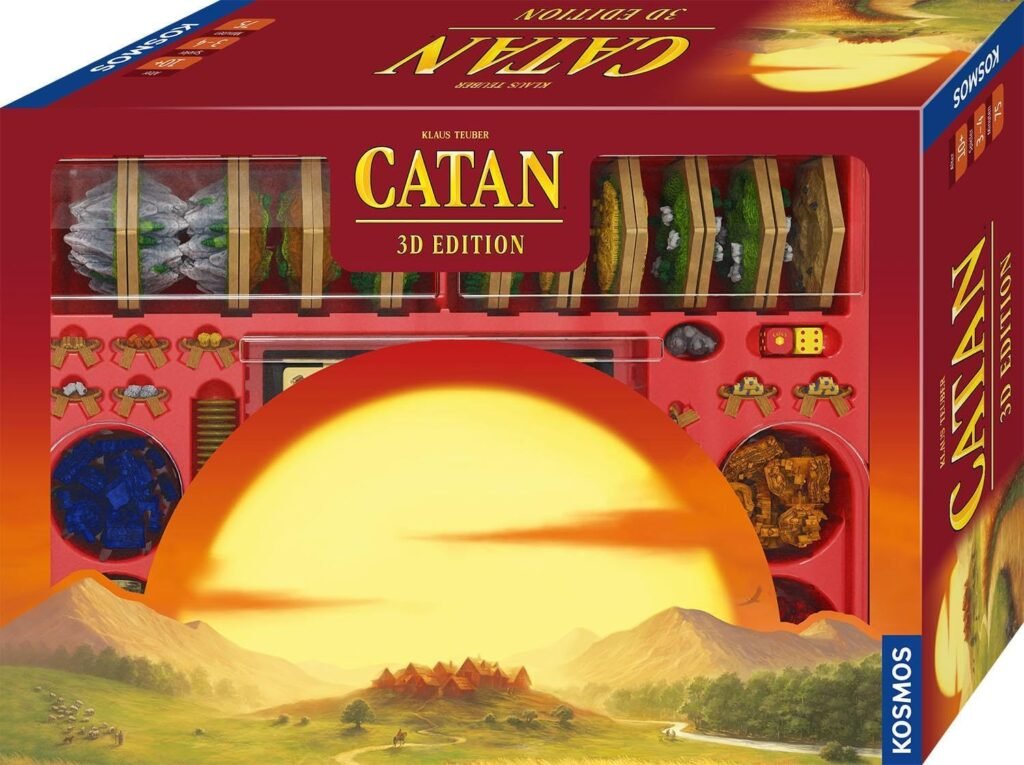
1996 Champion Overview
Now, let’s jump into “El Grande,” the heavyweight champ of 1996. Picture it: 15th-century Spain, a time when people wore fancy hats and had absolutely no idea what a cell phone was. In this game, you’re not just a player; you’re a grandee, vying for control of various regions with your caballeros. Sounds fancy, right? Trust me, it’s like being the star of your own historical drama, but with fewer costume changes and more wooden cubes.
“El Grande” is all about area control and secret actions, which basically means you’ll spend half the game plotting your next move and the other half trying to figure out what on earth your friends are up to. It’s like trying to read your dog’s mind but with way more strategy. The board itself is a map of Spain, divided into regions, and your mission, should you choose to accept it, is to dominate as many of these regions as possible.
One of the coolest parts of “El Grande” is the secret action cards. These cards let you pull off sneaky maneuvers like moving other players’ caballeros around or adding more of your own to a region. It’s like having a secret stash of chocolate you pull out when no one’s looking. But be warned, the intrigue can get real. You’ll be second-guessing everyone’s moves, including your own.
I remember one game where I thought I had it all figured out. I had the perfect plan to take over a key region, only to have my dreams crushed by a surprise move from my friend. Let’s just say my poker face needs some work.
But hey, that’s the beauty of “El Grande.” Even when you’re losing, you’re having a blast. So, if you’re in the mood for some strategic plotting and medieval power struggles, “El Grande” is your game. Just don’t forget to practice your best “I totally planned that” face for when your brilliant move actually works out.
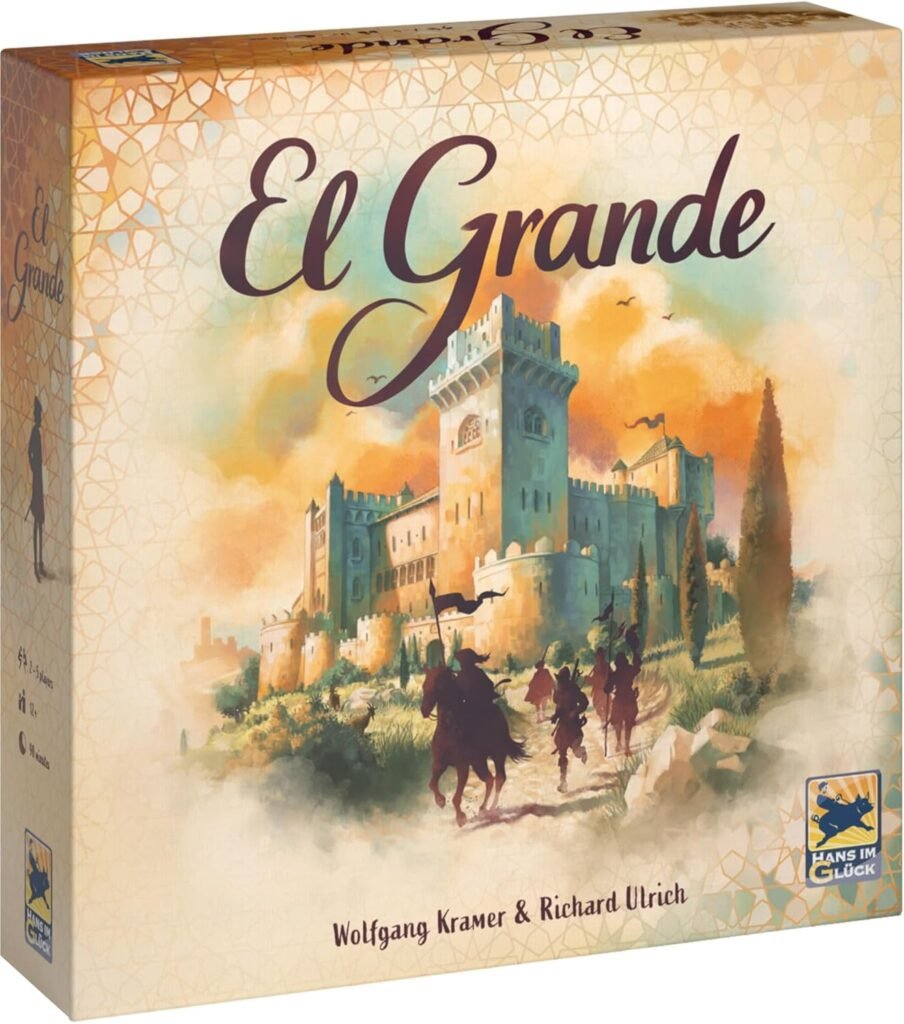
1995 Champion: The Good and The Bad
“The Settlers of Catan” brings a whole new meaning to the phrase “sheepish grin.” The strategic choices are top-notch. Building roads and settlements? That’s just the beginning. It’s like playing a real estate mogul, but instead of Manhattan penthouses, you’re dealing with wheat fields and clay pits. The trading aspect adds an element of social interaction that’s a real hoot. I can’t tell you how many times I’ve been swindled by my friends over a piece of ore. The negotiations can get as heated as a Thanksgiving dinner when politics come up. “I’ll trade you a sheep for some brick” never sounded so intense.
But let’s talk about the elephant in the room—or should I say, the robber? That pesky bandit always seems to end up on the one resource tile you desperately need. It’s like he has a personal vendetta against your dreams of building the longest road. And the dice? Don’t even get me started. They have a mind of their own, and sometimes, that mind is set on ruining your best-laid plans. You think you’ve got everything figured out, and then bam! Seven. Goodbye, resources.
And while the game is straightforward to learn, explaining it to newcomers can feel like you’re unraveling the secrets of the universe. “So, you need brick and wood to build a road, but you can’t place it just anywhere…” Watch their eyes glaze over as you dive deeper into the rules.
Despite its occasional quirks, “Catan” is a blast. Just be prepared for your friendships to be tested over some virtual wool. Who knew trading hexagonal pieces could be so life-changing? Or that I’d care so deeply about a piece of cardboard and plastic sheep?
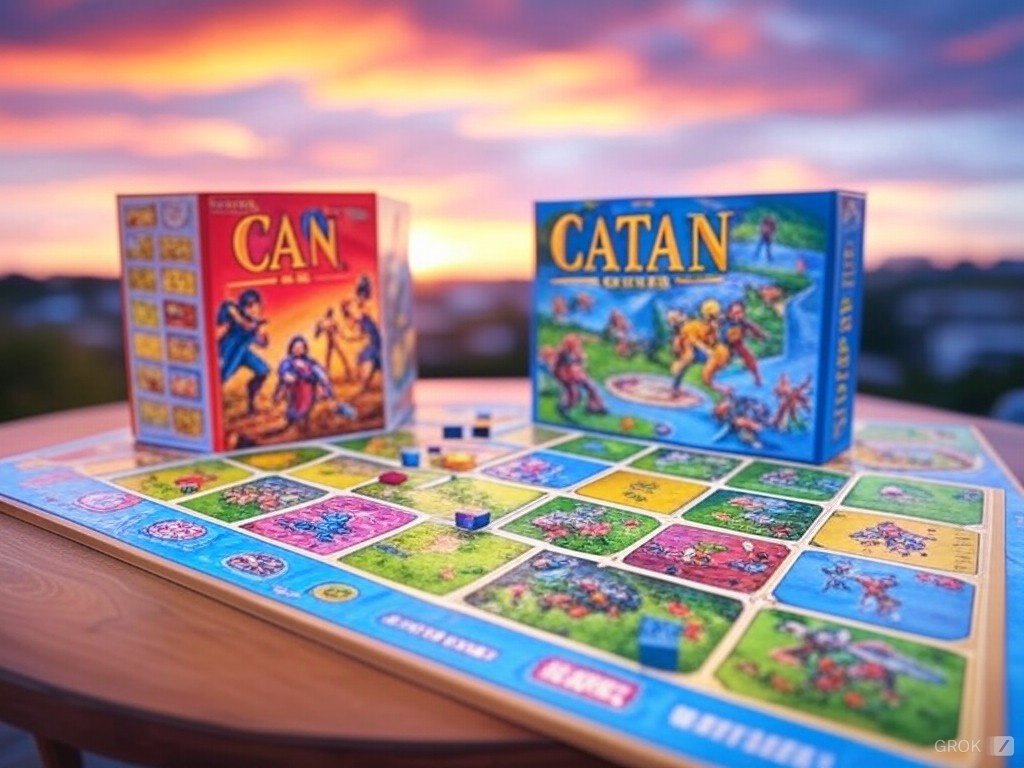
1996 Champion: Strengths and Weaknesses
“El Grande” has more layers than a seven-layer dip. Seriously, if you’re into strategy, this game is your jam. The area control mechanics are top-tier, and the secret action cards add a layer of mystery. It’s like playing poker, but instead of betting chips, you’re sending your caballeros to out-maneuver your friends. There’s nothing quite like the look on your buddy’s face when you snatch a region right out from under them. It’s priceless.
Now, let’s talk about the rulebook. This thing is thicker than a novel. I spent a good chunk of time just trying to figure out where to start. By the time I was done, I felt like I needed a PhD in “El Grande” studies. And don’t even get me started on explaining the rules to new players. I’ve had simpler times teaching my dog to fetch. “So, the mobile score board moves, but not before you use your secret power card…” Watch your friends’ eyes glaze over.
And while the game is incredibly engaging, it’s not for the faint of heart or the short of attention span. You have to commit to every move like it’s a chess grandmaster tournament. If you’re looking for a quick and easy game night, “El Grande” might feel like you’ve signed up for a tactical boot camp instead.
But, oh, the sweet, sweet taste of victory when you outwit everyone else! It’s like finally finding that remote under the couch. You’ll savor the moment, knowing that your grand strategy has paid off, and you get to gloat—just a little bit.
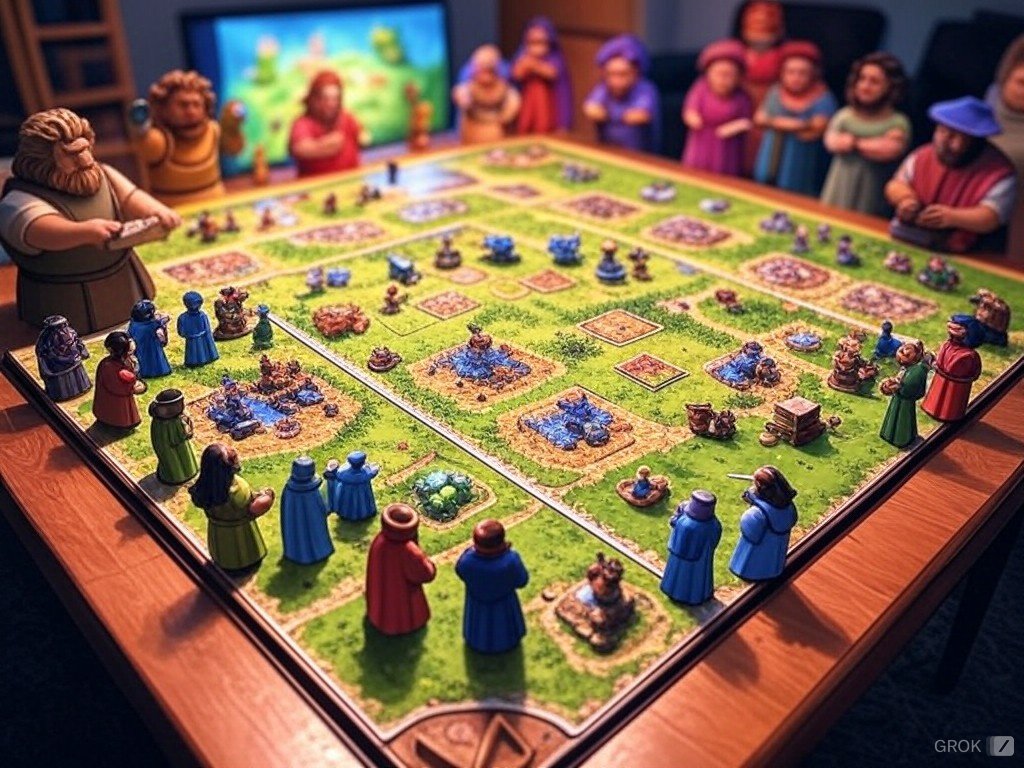
A Funny Break
Why don’t board games ever get lost? Because they always have a lot of pieces to give directions!
Oh, and here’s one for you: Why did the board game player get kicked out of the party? They couldn’t handle the “settlers” of disputes and were caught “cat-an” their way to victory! (I’ll see myself out.)
You know, playing these games has taught me a lot about patience. Like that one time I was losing so badly in “El Grande” that I considered faking a power outage just to save face. But hey, at least I didn’t have to wear a fancy hat and pretend it’s the 15th century.
And let’s not forget the endless fun of trading in “Catan.” It’s like being on a farm, but instead of a tractor, you’re driving hard bargains. “Will work for sheep” isn’t just a game phrase; it’s a lifestyle.
Ever heard of the board game that loves music? “Ticket to Ride”—it’s always on track!
Playing these games often feels like a life lesson wrapped in cardboard. Need resources? Beg, trade, or steal (okay, maybe not steal). Got a strategic plan? Watch it fall apart faster than my New Year’s resolutions.
One more before I go back to plotting world domination (or at least regional control): Why did the board game player break up with their partner? Because they couldn’t find “common ground” and kept “settling” for less!
Alright, I’m off to practice my “I meant to do that” face for my next game of “El Grande.” Wish me luck—I’m going to need it!
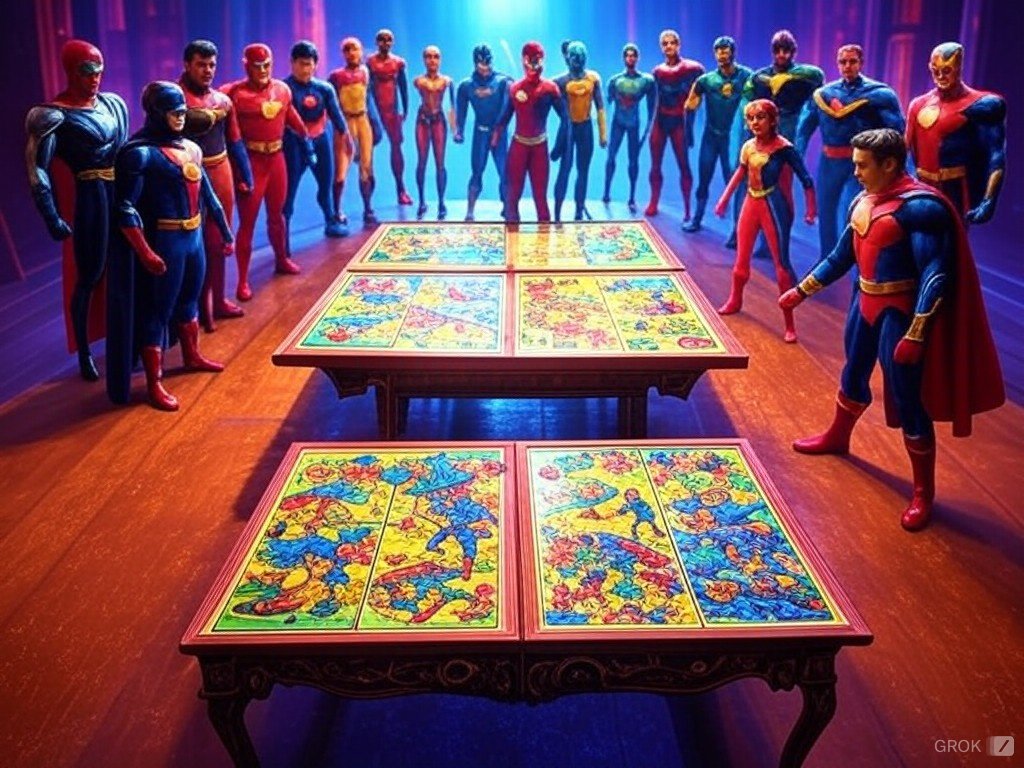
Which Game is the Winner?
Choosing between “The Settlers of Catan” and “El Grande” is like picking a favorite child—if your children were cardboard and plastic, and one of them constantly tried to rob you. Both games are titans in their own right. “Catan” gives you that thrilling, trade-filled ride where you’re bartering like a medieval market vendor. “Three sheep for one brick? Come on, who wouldn’t take that deal?” And don’t even get me started on the drama that unfolds with each dice roll. It’s like a soap opera but with more hexagons.
On the flip side, “El Grande” is where you go to flex your strategic muscles. It’s got that deep, tactical gameplay that makes you feel like a chess grandmaster. You’re not just moving pieces; you’re executing covert operations. I’ve had moments of pure genius and crushing defeats, sometimes in the same game. Plus, there’s something deeply satisfying about outmaneuvering your friends in a 15th-century power struggle. The secret action cards? Pure gold.
So, if you’re looking for a game that’s easy to pick up, interactive, and full of trading shenanigans, “Catan” is your best bet. But if you’re after a game with rich strategic depth and a dash of historical intrigue, “El Grande” takes the crown.
After much deliberation (and several sheep trades), I’d give a slight nod to “El Grande.” Its complexity and the sheer satisfaction of a well-executed plan make it my top choice. Plus, winning the Spiel des Jahres can boost a game’s sales from thousands to hundreds of thousands of copies, so they must be onto something with these picks!
So, grab your friends, pick a game, and get ready to gloat when you emerge victorious—just try not to rub it in too much.
